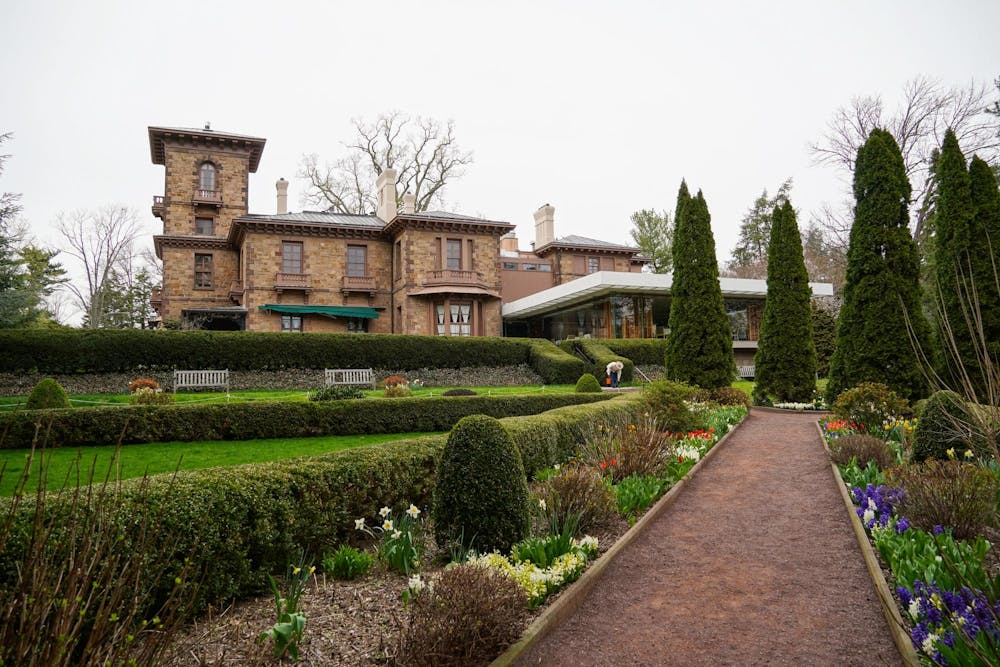While scrolling through the “finances” section of the Daily Princetonian’s freshman demographics survey for the Class of 2027, one statistic caught my eye: Of the freshmen coming from families who made more than $500,000 annually, 44.6 percent considered themselves “upper middle class.” I couldn’t help but raise an eyebrow at the word “middle.” As a general rule, if your family income is higher than double the median income of your region, you probably belong to the upper class. In a country where the median income is around $75,000, there is nothing middle class about earning more than half a million dollars a year. So, what compelled nearly half of the respondents to say they were in that income bracket?
Beyond the subjectivity of the word “middle class,” there is a lack of self-awareness that comes from Princeton students’ unwillingness to engage in cross-class discussions and acknowledge their own privilege. This leaves Princeton graduates not only lacking a realistic understanding of class in our blatantly class-restrictive society, but also results in a general misconception of what an “average” or “middle class” lifestyle looks like. To address this issue, we should actively reject this out-of-touch definition of middle class, and also engage in more intentional cross-class conversations, such as extending the Princeton, Money, and Me orientation program.
While there are many ways to define middle class, including both social and economic factors, it clearly doesn’t apply to those in the top five percent of America’s income earners, as nearly half of this year’s Frosh Survey respondents whose families earn over 500k annually suggested. Just because “middle-classness” is difficult to define does not mean anybody can claim it.
But like most rich people in the United States, wealthy Princeton students aren’t willing to admit that: “Americans might more readily classify themselves as bipeds or carnivores, or proclaim their sexual orientations, than define themselves as patricians, plutocrats or gentry,” Michael T. Kaufman wrote in his 1989 New York Times article. To be a part of the vaguely defined American “middle class” is to escape the aristocratic labels that all good patriots abhor. This has been framed as the “mythology of the ‘everyman’” — since class hierarchy does not fit in a nation built upon ideals of freedom and egalitarianism, “major class distinctions [are] often seen as a violation of ... national creed.” Americans’ hesitancy to accept their class, then, contributes to many Princeton students’ misidentification of their own class.
Princeton students’ inability to define middle-classness also appears to stem from our inability to discuss class openly. It’s no secret that some Princetonians come from backgrounds with vast financial privilege and some do not. But Princeton’s efforts to minimize the impacts of such class differences with financial aid for programs and services beyond just tuition and room and board have instilled a false sense that class division as a whole ceases to exist. It’s much easier to distort what the middle class means in a financially abundant, egalitarian vacuum. As a result, discussion about class is avoided and we feel average among our peers. Everyone here is lumped in with the quintessentially American, hard-working middle class, both because of the artificially-constructed equitable nature of campus and so that wealthier students don’t feel that privilege is what got them here to begin with.
Princeton may ensure our economic background does not impede our learning and leisure, but this must be done with the awareness that our post-Orange-Bubble lives will not take place in a financially equalized utopia. How will we go on to serve humanity if we lack a realistic understanding of the deep class divisions that profoundly affect the lives of its members?
Combating a lack of awareness of class on campus involves two important steps. First, we must actively reject the claims of a “universal middle class,” and second, we must further engage in cross-class conversations — for instance, by revamping the Princeton, Money, and Me orientation program. The former is relatively simple: Refrain from calling yourself middle class when you aren’t. We can more fully understand economic status only when we fully acknowledge it. This also involves realizing that having privilege in and of itself doesn’t make you a bad person — after all, you have no control over whether you are born into wealth or not. Wealth isn’t something to be ashamed of, and if you are ashamed of your wealth, lying isn’t the way to assuage your guilt.
Secondly, we need to have more institutionalized conversations about money at Princeton. The current Princeton, Money, and Me program, an orientation event designed for incoming freshmen, involves hearing various presenters of diverse socioeconomic backgrounds speak of their undergraduate experience at Princeton. Though I see value in the existing program, its brevity makes it difficult for students to engage in a more extensive conversation about class and socioeconomic status. Extending the event to a year-long program — perhaps through monthly advisory group meetings to discuss various source materials or events related to class diversity — rather than a one-time occasion could encourage conversation, provide an avenue to build community, and allow students to keep engaged with this topic. Most importantly, it would remind students of Princeton’s financial utopia and the false sense of a shared economic class it can create.

It’s no myth that isolated communities brew isolated worldviews: Growing up in a privileged community makes you less aware of the privilege you have. But Princeton is an intentionally curated body made to break those false conceptions. We reflect diverse lives, ideas, and beliefs, but also, economic backgrounds. We can’t share what we’ve gleaned from our differences without recognizing the differences to begin with. Acknowledging and learning from our class differences makes us better, more empathetic individuals at Princeton and beyond — so let’s embrace it, rather than fear it.
Siyeon Lee (she/her) is a first-year from Seoul, South Korea intending to major in Comparative Literature or History. She can be reached at siyeonlee@princeton.edu.









